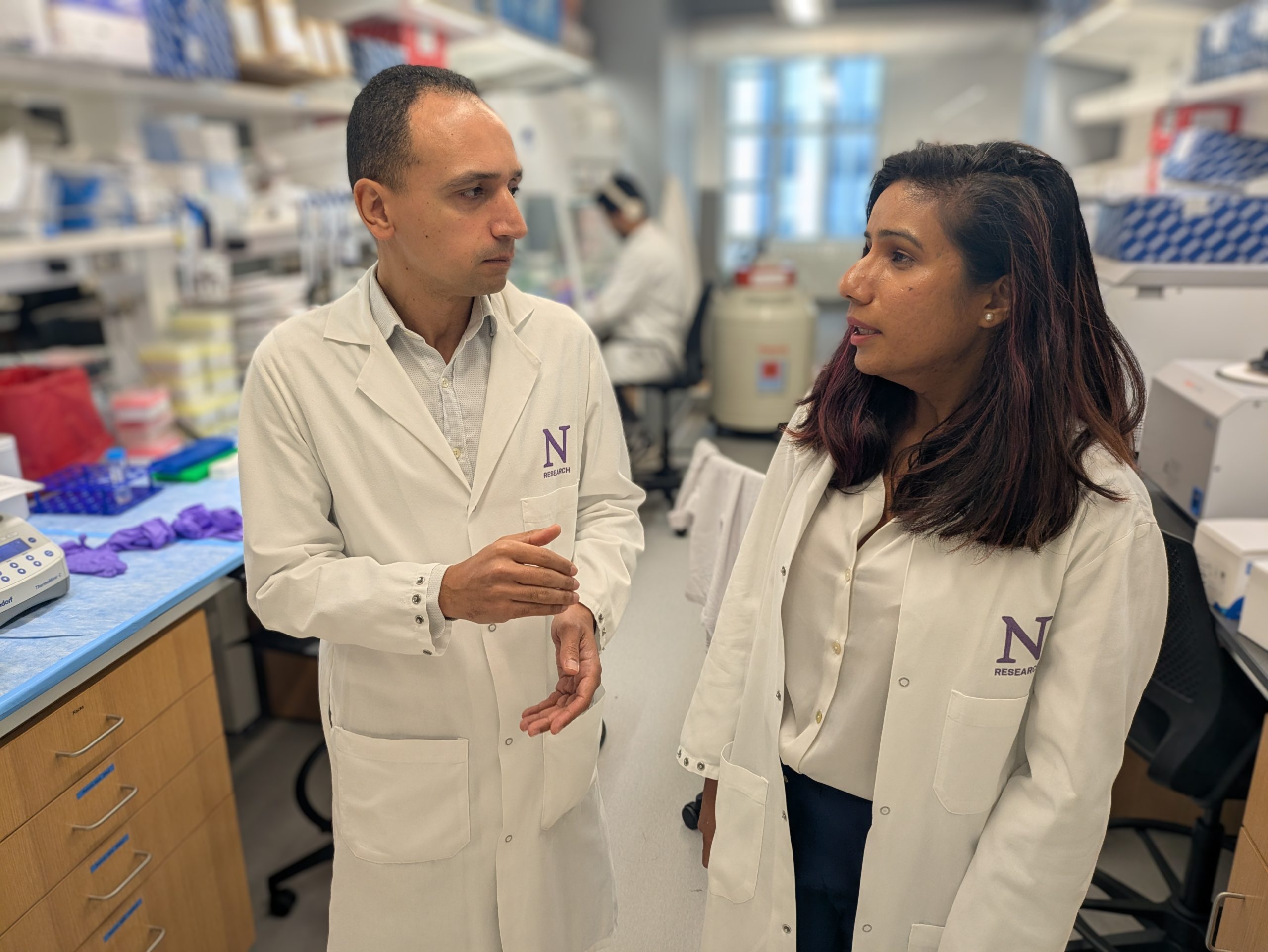
Scientists found a previously unknown link between mitochondria and kidney disease, identifying a receptor that causes kidney dysfunction when suppressed, according to a study published in Proceedings of the National Academy of Sciences.
The receptor — estrogen-related receptor gamma (ERRγ) — regulates mitochondrial metabolism, and was also found in unusually low levels in patients with chronic kidney disease, pointing to its importance in healthy kidney function. Grant Barish, MD, assistant professor of Medicine in the Division of Endocrinology, Metabolism, and Molecular Medicine, and Amanda Allred and Yasuhiro Omura, research technologists in the Barish laboratory, were co-authors of the study.
Mitochondria are the power plants of the cell, breaking down nutrients and converting them to chemical energy used in a variety of processes. Mutations in mitochondria can reduce their effectiveness, causing dysfunction in organs with high energetic demand such as the heart or kidneys.
Kidneys recycle electrolytes and glucose, part of their role of filtering blood, and have a high density of mitochondria to power that absorption — accordingly, the absorption function is especially vulnerable to mitochondrial impairment.
Prior to the study, the specific molecular mechanisms linking dysfunctional mitochondria to impaired reabsorption were poorly understood. ERRγ has recently emerged as a key regulator of mitochondrial function and previous studies have linked ERRγ to kidney development, but definitive evidence had yet to emerge for its role in disease.
In the current study, scientists found that ERRγ not only directly regulates kidney mitochondrial metabolism but also controls the abundance of renal solute carriers and pumps with another transcription factor called HNF1Β. Deletion of ERRγ results in kidney dysfunction comparable to that seen in models with loss-of-function mutations in HNF1Β, further supporting the link between ERRγ and HNF1Β.
ERRγ is a critical molecule linking energy-producing and energy-consuming functions in the kidney, according to the authors.
The study was supported by the Office of the Assistant Secretary of Defense for Health Affairs through the Peer Reviewed Medical Research Program under Award W81XWH-16-1-0400, National Institutes of Health (NIH) grants DK111495, DK099379, DK108987, DK087635 and DP3 DK108220, as well as a pilot award from the Diabetes Research Center at the University of Pennsylvania (NIH DK19525).






